Where did your Birmingham education take you? Share your updates with us through our website or tweet us @birminghamalum using #wearebrumalum.
WIN! For your chance to win a University hoodie, tell us what challenge Daniel McDonald (BA History with additional Economic and Social History, 1998) is taking part in. Send us your answer with your name, address and phone number by 31 July 2023. Check our Old Joe competition terms and conditions.
-
1966
W. Gordon Dick (MSc Thermodynamics, 1966)
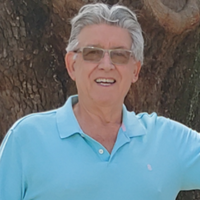
At Birmingham, I was guided and challenged on the why and how to think objectively, while deploying the critical tools provided by my immersion in Dr Bannister's fabulous courses, crammed into 12 months. Dr Bannister lit a fire in me that burns to this day, now over 50 years later.
The value of the education and 'educational polishing and finishing' I received at Birmingham was entirely priceless and allowed me to progressively give back to our world communities, throughout my long career. In my career, I have managed multiple multi-billion (US dollar) projects in the UK, US and Canada.
Though now retired and living a very nice life in Port Orange Florida, (where we watch rocket launches from our back yard) I am profoundly and eternally grateful to the University of Birmingham for the miracle of education, the magic of motivation and the challenges of cutting-edge competition. -
1966
Professor Christine King CBE DL FRSA FRHistS (BA History and Theology, 1966)

Having been to a school where hardly anyone went to university, I never expected to become an undergraduate, let alone a Vice-Chancellor. When I arrived on campus in 1963, I had no idea what to expect but I loved my time at Birmingham from day one - from finding digs in the city to learning what a seminar was. After graduating I combined my interest in history and theology to research English medieval pilgrimage. Both subjects continued to inform my research as I moved on to look at religion in Nazi Germany and I was privileged to be involved in the setting up of the US Holocaust Memorial Museum in Washington DC. I continue to research and publish in the history of religion.
I became Vice-Chancellor of Staffordshire University in 1995, one of the first women in the country to be appointed VC. Staffordshire was very different to Birmingham and rightly so, but the values I learnt and the passion for research and learning at Birmingham stayed with me and helped to form my thinking. My focus as Vice-Chancellor, besides developing our academic specialisms and prowess, was to open doors to groups and individuals for whom opportunities were hard to access, because of class, gender, disability, race or any other potential barrier. I will always be grateful for those early years spent at Birmingham and I send everyone involved in its present and future all good wishes as they go on to change lives. -
1966
Ivor Ralph Edwards (MBChB Medicine, 1966)
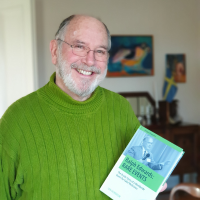
Having studied medicine and surgery at Birmingham, I've spent much of my professional life working on clinical toxicology and how medical treatment can save and improve lives. But what happens if the medicines are not safe? Around 2.5 million people die from unexpected side-effects every year.
I was proud to be selected the first Director of the Uppsala Monitoring Centre (UMC), transforming the centre from working with just 10 countries to 130 countries, and analysing more than 35 million cases to interpret and take actions to prevent or mitigate further harms. Today, the UMC is at the heart of the World Health Organization's Programme for International Drug Monitoring (WHOPIDM). Since my retirement, my wife, Dr Marie Lindquist, has led the UMC after me through the early months of COVID-19, at a critical time for the rapid development of new vaccines and medicines, and monitoring for side-effects.
In 2019, I was privileged to receive a rare honorary DSc from the University of Benin in Nigeria in recognition of work I have done to improve the safety of medicines, and their use globally, as well as in Africa.
A partly biographical book on the work of the UMC is just published by Ian Hembrow on the delicate balance and knife-edge decisions involved in making medicines as safe as they can be, called Rare Events: The Inside Story of a Worldwide Quest for Safer Medicines. -
1994
Andrea Clarke MBE (BSc Physiotherapy, 1994)
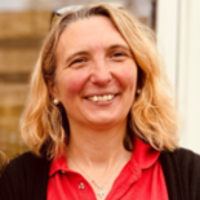
After graduating in physiotherapy I used what I had learned to found a charity, Playskill, in 2006 which has supported more than 350 children with physical difficulties in Hertfordshire, free to parents. We provide physiotherapy, speech/language therapy and occupational therapy for children on a weekly basis. Our aim is to provide early intervention for children aged one to five years old with physical disabilities and delays to change their lives for the long term, using neuroplasticity in the early years to the best advantage for them. We have a team of over 30 part-time staff and 50 volunteers working for the charity. The team have won a number of awards and I received an MBE from Prince William in November 2018.
-
1998
Daniel McDonald (BA History with additional Economic and Social History, 1998)

I was both privileged and excited to be selected to be one of the 25 amateur cyclists for The Tour 21 team in 2023. We will be riding the entire Tour de France route in July 2023, one week ahead of the professionals, to raise money for research into blood cancer.
Starting in Bilbao, the route will see us climb the equivalent of five Mount Everests in three weeks, through the mountain ranges of the Pyrenees, the Massif Central, the Jura, the Alps and the Vosges before finishing at the Champs-Élysées, Paris. It is the culmination of nearly a year of intense training – encouragement from my family and knowing I am supporting cancer research will get me to the finish line. -
2020
Megan Attard (School of Earth and Environmental Science, 2020)
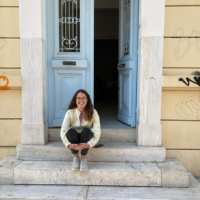
More than half the refugees in Greece are men on their own, without family or a support network, yet there is a near-absence of support for them. Alongside two colleagues, I run a non-profit programme in Athens, providing housing and psychosocial support for men experiencing homelessness. Mazí Housing breaks the cycle of homelessness, providing people the stability and opportunities they need to build their own route out of an unstable situation. Weekly house meetings enable residents to build the mutual support networks that solo people may not have in a foreign country, and our casework programme helps every individual set goals for the future, from education to employment. I am grateful to be a small part of what I believe is essential work ensuring people have access to shelter, warmth, food and social connection.
-
2021
Markella Grigoriou (PhD Psychiatry, 2021)
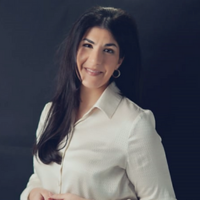
Conducting research on suicidal behaviour in people with schizophrenia was an unforgettable journey and a lifetime experience. The process of exploring challenging conditions, such as suicide, led me to adopt new perspectives on how we should interpret experiences in life, why we should take into account the individual experience and why professionals should connect with the patients when it comes to mental health intervention.
My main research focuses on understanding the role of blunted affect and social withdrawal in suicidal behaviour in schizophrenia and whether these symptoms contribute to changes in the brain function. Questions such as "Why do people end their lives? How can we prevent this? When should we seek help?" were accompanying me during the whole time as a PhD student and until today these questions are my motivation to carry on with many more activities such as policy making, professional training, academic teaching and public awareness.
Although there have been quite hard moments during my times as a researcher, the people and my colleagues at Institute for Mental Health and University of Birmingham were there any time I needed support. Nothing would be possible without my supervisors who are still my role models.